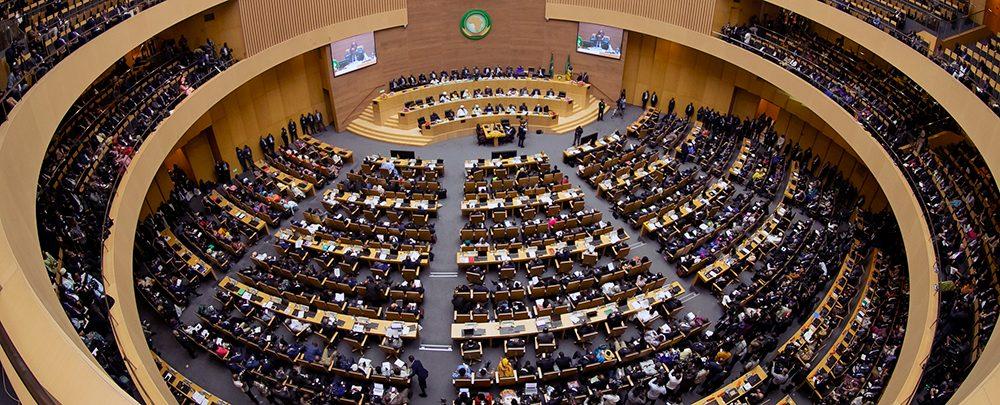Africa-Press – Seychelles. The executive director of the International Trade Center argues that African countries have arable land and sufficient capacity to feed themselves, so the African Union must decide “which country will produce what and how”.
“There is arable land, there is capacity. Therefore, there must be a decision among African countries about who will cultivate what and how and invest in that capacity to do so”, said Pamela Coke-Hamilton, in an interview with Lusa, on the sidelines of the Afro-Caribbean Forum for Trade and Investment, which took place last week in Barbados.
The director of the International Trade Centre, a multilateral agency that operates under the umbrella of the United Nations, said that Africa has the capacity to feed itself and has not yet done so because there is a system that forces everything to be imported.
He recalled that 42% of African wheat imports come from a single country, Ukraine, so he called for a political decision and subsequent financing, through institutions such as the African Development Bank or the African Export and Import Bank (Afreximbank) .
“The leaders, the African Union, must make a decision, just as CARICOM [Caribbean Community] made the decision to reduce dependence on food imports by 25% by 2025. Africa must make a similar decision to ensure that no happens again that a crisis can trigger food insecurity so suddenly,” said Coke-Hamilton.
The February invasion of Ukraine by Russia, two of the world’s largest grain exporters, has contributed to worsening food shortages in the world’s poorest regions, some of which are already experiencing severe hunger and malnutrition.
In the Horn of Africa, one of the most affected regions in the world, more than 37 million people face a situation of hunger, with approximately seven million children under five years of age suffering from acute malnutrition, as warned in August by the World Health Organization.
Despite efforts to resume deliveries of Ukrainian cereals across the Black Sea, since the beginning of the year, there has been a 46% drop in exports of these goods, according to the International Red Cross.
Organized by Afreximbank and the Government of Barbados under the slogan “One People. One Destiny. Unite and Reimagine Our Future”, AfriCaribbean Trade and In-
vestment Forum (ACTIF 2022), which took place in Barbados between 1 and 3 September, aimed to strengthen economic ties between Africa and the Caribbean, a region that the African Union considers the sixth region of Africa.
The International Trade Center (ITC) is a multilateral agency that has a joint mandate with the World Trade Organization and the United Nations, through the United Nations Conference on Trade and Development.
Based in Geneva, the ITC supports least developed countries to improve their participation in the world economy and to achieve their development goals through exports.
Industrialization
The executive director of the International Trade Center argues that “there is something systemically wrong” in the way international trade still works and says that investing in the industrialization of Africa “is a matter of basic human rights”.
What is wrong, explained Pamela Coke-Hamilton, is a system built over the last two centuries, but which remains largely unchanged, of “continuous removal of goods from Africa, the Caribbean”, to which value is added, and then bought back.
The system allows, for example, for African coffee to be sold for US$6 billion, but the final products of that same coffee, processed outside the continent, yield US$100 billion, a difference in value added of US$94 billion (even value in euros).
For the official, it is necessary more than industrializing Africa, it is necessary a “change of mentality”.
“It is necessary that the countries that buy or withdraw products from Africa also recognize the importance of investing in these countries and of keeping the value there, both for the purposes of development, of human resources, but also for the sake of basic human rights and human dignity”.
“Centuries later, we continue to do the same thing. Wouldn’t it be nice to have chocolate made in Africa, where cocoa is produced? Belgium and Switzerland do not produce cocoa and are the biggest exporters” of chocolate, he exemplified.
Coke-Hamilton added that large companies and rich countries that transform goods produced in Africa do not have to give up anything, they only have to change the place where they do this transformation, but they can still make money from Africa.
“It’s just a matter of transferring their resources in a way that further develops Africa and thus creates more opportunities for them. It doesn’t have to be a loss, it can be a win-win situation.”
Fifty million people forced to work or marry
Modern slavery has increased across the world in recent years, mainly driven by the Covid-19 pandemic, with nearly 50 million people forced into work or marriage in the past year, the UN revealed yesterday.
The information is contained in the latest report published by the International Labor Organization (ILO) and the International Organization for Migration (IOM) – two UN agencies – with the Non-Governmental Organization Walk Free Foundation
According to the document, the UN wants to eradicate this scourge by 2030, but last year there were 10 million more people in a situation of modern slavery than global estimates for 2016. About 27.6 million were people subjected to forced labor. and 22 million married against their will.
Women and girls account for more than two-thirds of people forced into marriage, and nearly four in five of them were in a situation of commercial sexual exploitation, according to the report. In total, they account for 54 percent of modern slavery cases.
The pandemic – which has caused working conditions to deteriorate and workers’ indebtedness to rise – has strengthened the sources of modern slavery in all its forms.
In recent years, according to the report, the multiplication of crises – the pandemic, but also armed conflicts and climate change – have caused unprecedented disruptions in terms of employment and education, a worsening of extreme poverty, an increase in forced and dangerous migrations. , the explosion of cases of gender violence.
Worldwide, nearly one in 150 people is considered a modern slave.
In a press release, the Director-General of the ILO, Guy Ryder, considers it “shocking that the situation of modern slavery is not improving” and appeals to governments, but also to trade unions, employers’ organizations, civil society and the ordinary citizen to fight “this fundamental violation of human rights”.
The report proposes a series of actions, including improving and enforcing labor laws and inspections, ending state-imposed forced labor, expanding social protections and strengthening legal protections, raising the legal age of marriage to 18 years without exception.
According to the report, women and children remain disproportionately vulnerable. Thus, nearly one in eight forced laborers is a child and more than half of them are victims of commercial sexual exploitation.
Migrant workers are more than three times more likely to be subjected to forced labor than non-migrant adults. The director general of the IOM, António Vitorino, called for all migration “to be safe, orderly and regular”.
“Reducing the vulnerability of migrants to forced labor and human trafficking depends, above all, on national policies and legal frameworks that respect, protect and fulfill the human rights and fundamental freedoms of all migrants”, he stressed.
Asia and the Pacific have more than half of the world’s total forced labor.
For More News And Analysis About Seychelles Follow Africa-Press






